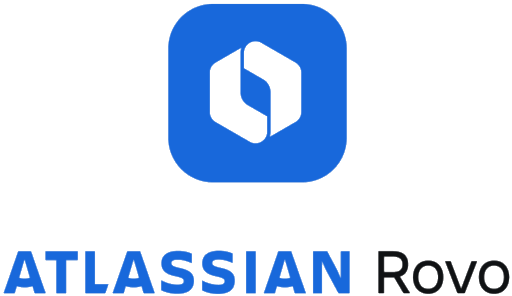The Future of AI in Healthcare: Trends and Innovations
Future of AI in Healthcare FAQs addressed in this article:
-
How is AI transforming healthcare diagnostics? – AI is enhancing the accuracy and efficiency of diagnostics in healthcare by streamlining workflows, improving precision in CT imaging, accelerating MR image acquisition, simplifying ultrasound measurements, and enhancing radiological interpretation.
-
What role does AI play in cancer care? – AI facilitates multidisciplinary collaboration by integrating patient data across clinical domains, assists in minimally invasive surgical procedures, and aids in early detection of patient deterioration, which can lead to improved treatment outcomes in cancer care.
-
How does AI contribute to early disease detection? – AI tools like Sybil can predict the likelihood of developing diseases such as lung cancer with high accuracy rates, and AI algorithms are used in infectious-disease surveillance and for identifying diseases like pancreatic cancer at earlier, potentially curable stages.
-
What are the benefits of AI in personalized treatment plans? – AI analyzes a patient’s medical history, genetics, and lifestyle to create personalized treatment plans, which is especially impactful in cancer treatment for diagnosing, personalizing treatments, and monitoring survivors.
-
How does AI improve healthcare accessibility? – AI can manage patient requests, provide medical information, prescribe medications, schedule appointments, and through telehealth and Mhealth technologies, ensure healthcare reaches remote areas, potentially reducing costs and improving access and efficiency.
-
What advancements has AI made in drug discovery and development? – AI has reduced the time and cost of drug discovery, with innovations like AbSci’s creation of de novo antibodies using generative AI and the FDA’s first AI-designed orphan drug, showing AI’s capacity to innovate and streamline the drug discovery process.
-
How is AI enhancing operational efficiency in healthcare? – AI optimizes the utilization of hospital resources, provides predictive insights for patient flow management, and aids in task management and communication, with tools like Microsoft 365 Copilot improving operational outcomes.
-
What is the significance of AI in healthcare data security? – AI is crucial in identifying and inventorying electronic PHI (ePHI), using deep learning to mimic trained humans’ abilities without cumbersome programming, and is necessary as traditional defenses are no longer sufficient against evolving cybersecurity threats.
-
Can AI help with the predictive maintenance of medical equipment? – Yes, AI predicts when medical equipment requires maintenance, reducing service cases and preventing interruptions to clinical practice, thus enhancing the continuity of care.
-
What is the impact of AI on remote monitoring of cardiac patients? – Cloud-based AI is used for early detection of atrial fibrillation or heart rhythm disturbances from remote ECG recordings, improving patient outcomes in cardiac care.
Artificial Intelligence (AI) is reshaping healthcare, promising transformative changes across diagnostics, treatment, and operational efficiency. Here we explore these advancements and what the future might hold.
AI-Enhanced Diagnostics in Healthcare
Artificial Intelligence is significantly transforming the field of diagnostics in healthcare. The integration of AI in diagnostic procedures is not only streamlining workflows but also enhancing the accuracy and efficiency of diagnostics. Below are examples, statistics, and expert opinions illustrating this transformation.
Improving Precision in CT Imaging
AI-enabled solutions in radiology, particularly in Computed Tomography (CT), are addressing challenges like patient mispositioning, a common issue that can result in increased radiation dose or image noise.
AI-enabled camera technology can automatically detect anatomical landmarks for accurate patient positioning, while AI-enabled image reconstruction helps reduce radiation dose and improves image quality, thereby boosting diagnostic confidence.
Accelerating MR Image Acquisition
In Magnetic Resonance (MR) imaging, AI-based image reconstruction is speeding up exams, which in turn increases department productivity and reduces the cost per exam. Importantly, this technology enhances the MR accessibility for patients under stress or pain, as it shortens exams and ensures scans are right the first time.
Simplifying Ultrasound Measurements
Cardiac care has seen ultrasound become a critical diagnostic tool. AI-based automatic measurements in ultrasound are delivering fast and reproducible echo quantification. This not only improves the patient and staff experience but also enhances the accuracy of diagnostic decision-making, removing the variability associated with manual operations.
Enhancing Radiological Interpretation
AI is assisting radiologists by improving image segmentation and quantification. It acts as an adjunct to radiologists by highlighting areas of interest or incidental findings. For instance, AI algorithms have improved diagnostic accuracy in multiple sclerosis patients by 44% and reduced reading times. Similarly, AI-based lung nodule detection has performed searches 26% faster, detecting previously missed nodules.
Facilitating Multidisciplinary Collaboration in Cancer Care
AI is enabling the integration of disparate patient data across clinical domains like radiology, pathology, EHR systems, and genomics. This comprehensive view assists in making timely and informed treatment decisions in cancer care, enhancing the prospects of positive treatment outcomes.
Assisting in Minimally Invasive Surgical Procedures
AI-based workflow automation and clinical decision support are aiding interventional physicians in performing minimally invasive procedures with greater accuracy and efficiency. For example, cloud-based AI is being used to detect large vessel occlusion, a major cause of stroke, in CT images.
Early Detection of Patient Deterioration
AI-enabled tools in acute and post-acute settings are identifying early signs of patient deterioration, such as respiratory failure or cardiac arrest. These tools are making a significant impact, evidenced by one hospital reducing serious adverse events in the general ward by 35% and cardiac arrests by over 86%.
Predictive Maintenance of Medical Equipment
AI is also being utilized to predict when medical equipment requires maintenance. This predictive approach has reduced service cases and prevented interruptions to clinical practice, enhancing the continuity of care.
Streamlining Hospital Operations
AI is optimizing the utilization of hospital resources such as equipment, beds, and staff. It provides predictive insights that manage patient flow, addressing questions like bed allocation and patient transfer, thus ensuring effective care delivery.
Remote Monitoring of Cardiac Patients
AI is extending its reach beyond hospital walls, particularly in cardiac care. Cloud-based AI is used for the early detection of atrial fibrillation or heart rhythm disturbances from remote electrocardiogram (ECG) recordings. This proactive approach in cardiac care is improving patient outcomes.
AI-enhanced diagnostics in healthcare are facilitating more accurate, efficient, and patient-centric diagnostic processes. The adoption of AI in various diagnostic modalities is not only improving patient experiences and outcomes but also contributing to the operational efficiency of healthcare institutions.
Personalized Treatment Plans
AI is expected to play a pivotal role in tailoring treatment plans, making healthcare more effective by considering individual genetics, lifestyle, and medical history.
The incorporation of AI in healthcare has led to the emergence of personalized treatment plans that are revolutionizing patient care. Here’s an expansion on how AI is contributing to this significant shift:
Cancer Research and Treatment
- Big Data and AI in Detecting Cancer: AI analyzes genomic and molecular data to detect risk factors like the BRCA mutation, linked to increased risks of breast and ovarian cancers. This allows for more targeted screening and early detection.
- Real-Life Example: Oncora Medical’s patient care platform integrates EHRs and other oncology software, providing structured patient information and identifying high-risk patients using machine learning. It is used by MD Anderson Cancer Center, resulting in significantly reduced data documentation time.
- Benefits: Early detection and diagnosis of cancer, customized treatment plans, and better patient outcomes.
Disease Detection
- Accelerated Diagnosis: AI and big data expedite the diagnosis of autoimmune and other health conditions, with gene sequencing identifying patients at high risk.
- Real-Life Example: PeraHealth’s Rothman Index uses data from EHRs to monitor patient health, leading to early disease detection and improved outcomes. Yale-New Haven Health using this tool reduced mortality rates from sepsis by 29%.
- Benefits: Early stage disease detection, identification of high-risk patients, personalizing treatment plans, and reducing readmission rates.
Drug Discovery
- AI-Driven Drug Development: AI helps identify promising drug candidates, tailoring them to specific patient groups, and predicting drug response based on patient data.
- Real-Life Example: Innoplexus’ AI platform processes unstructured data from research and clinical trials, aiding in drug discovery and predicting clinical trial outcomes. It predicted the failure of Biogen’s Alzheimer’s drug trial with high accuracy.
- Benefits: Faster drug discovery, development of safer medicines, tailored drugs for patient groups, and reduced adverse effects.
AI in personalized medicine is creating a paradigm shift in healthcare, from cancer treatment to disease detection and drug discovery. By leveraging AI and big data, healthcare providers are able to offer more accurate, effective, and individualized care, enhancing patient outcomes and the efficiency of medical treatments.
Drug Discovery and Development
In pharmaceuticals, AI could expedite drug discovery and optimize development processes, potentially reducing costs and accelerating the availability of new treatments.
The future of AI in healthcare, particularly in drug discovery and development, is marked by significant advancements and transformative potential. Here’s a detailed overview incorporating recent concepts, examples, statistics, and research results:
AI in Drug Discovery: Recent Milestones
AbSci’s Innovation: In 2023, AbSci became the first entity to create and validate de novo antibodies in silico using generative AI. This breakthrough demonstrates AI’s capacity to innovate in the antibody discovery process.
FDA’s First AI-Designed Orphan Drug: The FDA granted its first Orphan Drug Designation to a drug discovered and designed using AI, with Insilico Medicine beginning a global Phase II trial early in 2023.
Iambic’s successes: In two years, Iambic has created four AI-discovered molecules, with the foremost reaching Phase 1 testing soon.
While no AI-developed therapies have advanced to clinical trials yet, several have potential to do so in 2024. This is a rapidly developing subject that bears continuing attention.
AI’s Role in Streamlining Drug Discovery
AI substantially reduces the time and cost of drug discovery. Traditional methods take three to six years for pre-clinical stages, costing hundreds of millions to billions of dollars. In contrast, AI can significantly shorten this timeline and reduce costs.
Key AI Functions in Drug Discovery:
- Target Identification: AI analyzes large datasets to understand diseases and identify novel proteins/genes for targeting.
- Molecular Simulations: AI facilitates high-fidelity molecular simulations, reducing the need for physical testing.
- Property Prediction: AI predicts key properties like toxicity and bioactivity of drug candidates.
- De Novo Drug Design: AI generates novel drug molecules from scratch, shifting away from traditional screening methods.
- Candidate Prioritization and Synthesis Pathway Generation: AI ranks potential drug compounds and suggests synthesis pathways.
AI is revolutionizing the field of drug discovery and development by enabling faster, more efficient, and innovative approaches. This transformation is marked by significant investments, strategic collaborations, and a shift in traditional methodologies, positioning AI as a pivotal player in the future of healthcare.
Patient Privacy and Data Security
The ethical aspect of AI, particularly in maintaining patient data privacy and security, is paramount. Future advancements will need to balance healthcare innovation with protecting sensitive information.
The future of AI in healthcare regarding patient privacy and data security is a complex and evolving landscape. The integration of AI in healthcare brings both challenges and opportunities in protecting patient data. Here’s a detailed overview of the current state and future directions:
Cybersecurity Threats in Healthcare
- Rising Cyberattacks: The healthcare industry faces an increasing number of cyberattacks, such as ransomware and phishing, targeting patient data. This not only leads to financial losses but also erodes patient trust and potentially affects patient care.
- Nation-State Attacks: Determined nation-states are targeting U.S. health providers for financial gains and intellectual capital, with North Korea notably engaging in ransomware attacks. The use of nation-state–grade cyber weapons complicates the cybersecurity landscape for healthcare organizations.
- Vulnerabilities in Medical Devices: Many medical devices are vulnerable to attacks due to outdated software. The lengthy FDA certification process often means devices are outdated even when newly released. This vulnerability makes the healthcare sector a lucrative target for cybercriminals.
Data Management and Security
- Growing Patient Data: As the amount of patient data grows, healthcare organizations are focusing on how to manage and extract insights from this data. However, ensuring patient privacy and security is critical. The complexity increases as vendors store data for multiple healthcare organizations, and some share data with fourth-party vendors, creating additional vulnerabilities.
- Staffing Challenges: Healthcare organizations need privacy and security experts to manage these challenges. Recruiting from other highly regulated industries like banking and offering remote work opportunities are strategies being considered. However, recruiting from other industries is difficult due to higher salaries elsewhere, leading to inexperienced hires and potential security risks.
AI’s Role in Enhancing Data Security
Healthcare organizations are increasing their spending on preventive and reactive cybersecurity solutions. Despite this, breaches of unsecured protected health information (PHI) remain a significant issue.
AI is increasingly used to identify and inventory electronic PHI (ePHI). Deep learning allows AI models to mimic the ability of trained humans in identifying ePHI without cumbersome programming tasks. This approach is more effective than outdated rules-based pattern matching technologies.
The integration of AI in healthcare presents both significant challenges and opportunities for patient privacy and data security. The industry faces complex cybersecurity threats but also benefits from the advancements in AI technologies that enhance data security. Effective management of these issues requires a concerted effort involving technological solutions, regulatory oversight, and strategic staffing.
Operational Efficiency and Communication
AI and digital tools are enhancing operational efficiency in healthcare, aiding in task management and communication. Tools like Microsoft 365 Copilot are helping healthcare managers improve operational outcomes.
Operational Efficiency Through AI Integration
- AI in Enhancing Healthcare Management: AI technologies, such as those being developed by CVS Health, are focusing on voice, artificial intelligence, and robotics to automate processes, reduce costs, and improve experiences across healthcare domains. This approach helps in addressing labor shortages and mitigating physician and nurse burnout, which are critical issues in the healthcare sector.
- Generative AI in Healthcare: Despite challenges in accuracy and reliability due to a lack of healthcare-specific training in many AI tools, significant opportunities exist for AI to bridge information gaps in healthcare. AI can play a crucial role in workflow automation and optimization, data structuring and analysis, and ambient monitoring of patient engagements.
- Emerging Focus Areas: Clinical decision support tools, telehealth platforms, remote care delivery, diagnostic and treatment decision-making are all areas ripe for AI intervention. These applications could revolutionize treatment and care delivery outcomes when AI technology matures.
- Recent AI Implementations: HCA Healthcare’s partnership with Google Cloud and Augmedix focuses on using AI for clinical documentation in emergency departments, enhancing workflows and patient care. Similarly, Anthem Blue Cross and Blue Shield are integrating AI-driven virtual-first health plans to streamline services. Epic and Duke Health have also joined forces with Microsoft to utilize AI in healthcare delivery.
AI in Healthcare Communication
- Improving Diagnostics and Patient Data Analysis: AI assists in managing diseases such as kidney disease and streamlines the analysis of patient data. For example, 97% of healthcare data, including unstructured data like X-rays and medical records, is underutilized. AI and machine learning (ML) technologies, such as Amazon HealthLake, are being employed to structure and interpret this data.
- Natural Language Processing (NLP) Applications: NLP has been effectively used in contexts like the Fred Hutchinson Cancer Center for reviewing clinical records to match patients with clinical cancer studies. This technology enables the rapid review of large volumes of data to find suitable clinical trial candidates.
- AI in Kidney Disease Management: AI and ML are used in nephrology for diagnosing and predicting patient outcomes, including hospitalization and COVID-19 identification. Technologies like deep learning analyze images from smartphones to assess patients’ conditions, significantly enhancing diagnosis and treatment planning.
- Conversational AI and Virtual Assistants: The expanded use of conversational AI and virtual assistants is expected to become more mainstream for symptom checking and triage. These AI systems can guide patients in preparing for appointments, providing necessary information such as fasting guidelines and pre-exam instructions.
- Automated Scheduling and Omics Integration: AI-driven improvements in scheduling are anticipated, particularly in retail health transitioning to primary care. Furthermore, AI will play a significant role in integrating omics data (like metabolomics and genomics) with electronic health records and data from wearable devices, enhancing personalized patient care.
The integration of AI in healthcare is not only enhancing operational efficiency but also transforming patient communication, leading to more personalized and effective healthcare delivery.
Future Trends in AI-Driven Healthcare
- Early Disease Detection: AI has the potential to detect diseases at their earliest stages, potentially saving lives.
- Personalized Treatment Plans: AI is expected to assist in tailoring treatment plans to individuals’ unique needs.
- Healthcare Accessibility: AI might ensure healthcare reaches remote areas through telehealth and Mhealth technologies.
- Streamlined Operations: Hospitals may see operational excellence through AI-driven optimization.
- Data Security: AI is anticipated to play a crucial role in safeguarding patient data and preventing breaches.
Early Disease Detection
Artificial Intelligence (AI) has made significant strides in the early detection of various diseases. For instance, a new AI tool called Sybil, developed by researchers from MIT and MGH, can predict the likelihood of developing lung cancer within a year with an accuracy rate of 86% to 94%.
Another example is a health tech start-up that won the Innov8 Talks pitch competition at the Florida International Medical Expo (FIME) 2023 for its AI solutions in early disease detection.
AI’s impact is also evident in infectious-disease surveillance, where early-warning systems benefit from AI algorithms and analytics. For diseases with historically grim prognoses, like pancreatic cancer, AI algorithms are being deployed to identify the disease earlier, potentially when a cure is still possible.
Additionally, Duke University researchers have developed a computer program that can determine with 94% accuracy if a person’s age-related macular degeneration (AMD) will worsen.
Personalized Treatment Plans
The convergence of AI and personalized medicine is redefining patient care by tailoring healthcare to individual needs. AI’s ability to analyze a patient’s medical history, genetics, and other factors aids in creating personalized treatment plans.
This approach is particularly impactful in cancer treatment, where AI aids in diagnosing cancer, personalizing treatments, and monitoring survivors, although it does present some limitations and ethical considerations.
Healthcare Accessibility
AI is expected to play a vital role in improving healthcare accessibility. It can handle more patient requests such as providing basic medical information, answering questions, prescribing medications, and scheduling appointments. This can potentially reduce healthcare costs and improve access, outcomes, and efficiency.
Digitalization of healthcare data across systems allows novel AI approaches to significantly speed up the acquisition, reconstruction, and quantification of medical imaging data.
Streamlined Operations
Hospitals are increasingly adopting AI to improve patient care and resource allocation. The Cleveland Clinic, for example, has partnered with Palantir Technologies to launch a Virtual Command Center for this purpose.
Children’s Mercy Kansas City has introduced the Patient Progression Hub, using AI and predictive analytics to forecast patient demand, improve care access, and streamline patient flow.
In India, AI is streamlining hospital operations, automating administrative tasks, optimizing resource allocation, and enhancing decision-making through predictive analytics.
Data Security
The role of AI in healthcare data security is becoming increasingly crucial. With 97% of healthcare data being unstructured and underutilized, AI has the potential to harness this data effectively while ensuring its security.
The healthcare sector faces challenges with data breaches, which have reached an average cost of nearly $11 million. AI’s role is to balance healthcare advancement with the protection of sensitive information.
The healthcare cybersecurity landscape is evolving, and traditional defenses like antivirus software and firewalls are no longer sufficient, necessitating AI-driven solutions. These developments indicate a rapidly evolving landscape where AI is becoming an integral part of healthcare, offering solutions for early disease detection, personalized treatment, improved accessibility, operational efficiency, and enhanced data security.
Is your organization fully equipped to leverage AI to stay at the forefront of healthcare in 2024? Cprime’s AI experts can help determine what’s necessary to get you there.






